Shaving your legs makes your hair grow thicker and faster.
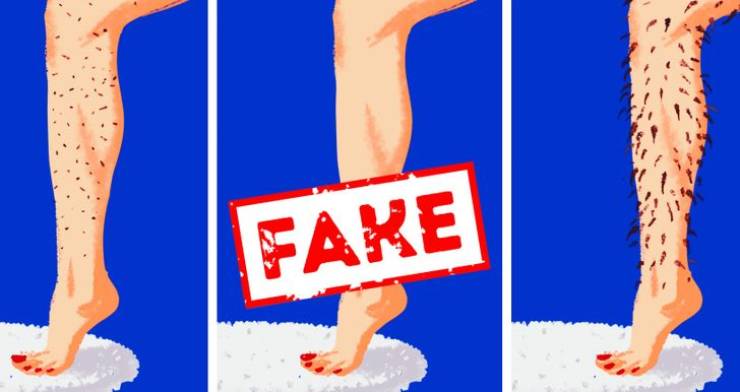
The truth: When your hair starts growing back, you might feel like the tips are more blunt and darker than usual. And that’s because new hair has yet to be exposed to natural elements, like sunlight and chemicals that lighten its color. This doesn’t mean that razors cause your hair to grow darker, thicker, and faster. So, you shouldn’t feel pressured to change your hair removal routine if it keeps you happy and satisfied.
All humans swallow 8 spiders in their sleep every year.
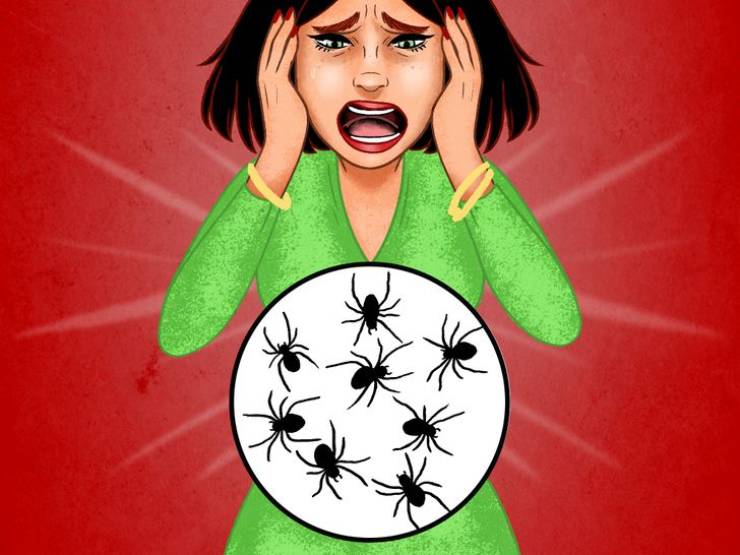
The truth: Spiders couldn’t care less about humans and they have no interest in climbing us and reaching our mouths when we sleep. And that’s because our heavy breathing and snoring are way too heavy for them to approach. We are also way too big for them — they actually see us as a part of their landscape and nothing more. Additionally, it would be very difficult for people to not wake up if a spider roamed around on their face and entered their mouth.
You can get arthritis from cracking your knuckles.

The truth: The reason our knuckles crack when we stretch or bend them is because the synovial fluid (inside them) is bursting. This is the fluid that lubricates our joints and it receives all the pressure that comes from cracking. Many studies have shown that this habit doesn’t cause arthritis, but you might need to quit it for a different reason. What we know is that chronic knuckle cracking can cause your hand to have a weaker grip.
Carrots can really improve your vision.

The truth: Carrots are a great source of Vitamin A, which is known to improve night vision. However, a person doesn’t need to eat massive amounts of carrots to get their Vitamin A, since they can receive it from various other foods. It is important though to combine carrots with some sort of fat in order to absorb all the Vitamin A you can. Bottom line is that carrots will help keep your eyesight in good condition, but they can’t improve it or bring it back.
Our tongues have 6 taste zones.
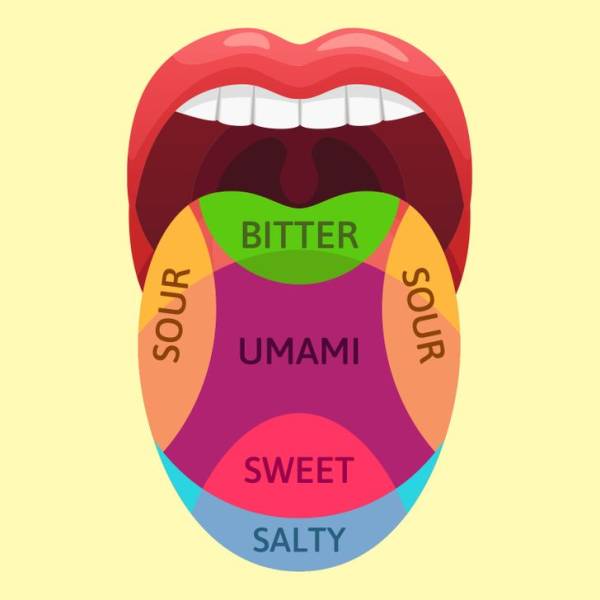
The truth: All regions of our tongues can detect all the different flavors and tastes that exist in foods. The myth of the taste zones goes back to 1901, but recently scientists have debunked it. Our tongues have 5,000-10,000 taste buds scattered all over their regions and they send our brains signals when they taste something. So, it’s more about brain perception based on our experiences and memories rather than the taste zones of our tongues.
White teeth mean healthy teeth.
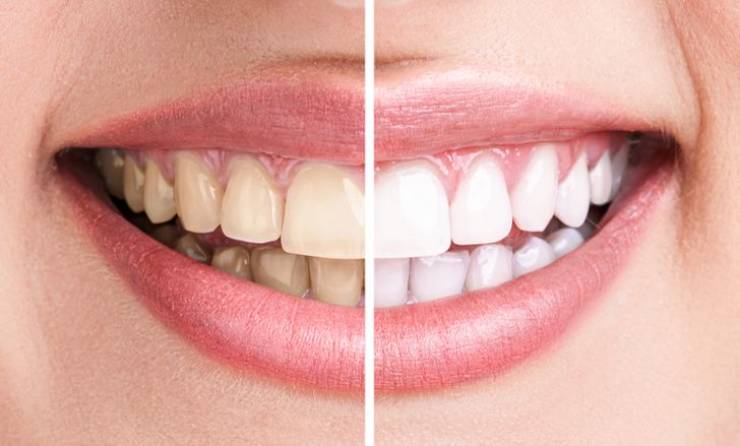
The truth: Everyone’s teeth are different and their off-white color doesn’t necessarily mean that they are unhealthy. It can simply mean that their enamel thickness is weaker, something that is completely normal. Also, other factors like aging and smoking can reduce the enamel or stain it, taking away the whiteness. And we shouldn’t forget about genetics, which can cause someone’s teeth to form in a very specific way.
Your heart stops beating when you sneeze.

The truth: When you inhale before sneezing, the pressure in your heart increases, and after you sneeze it decreases. So naturally, your heart rate is altered during this process, giving you the idea that your heart stops momentarily. You can rest assured that the electrical activity in your heart resumes as normal and it doesn’t stop every time your nose gets irritated.
You need to wait 30 minutes to go swimming after eating.
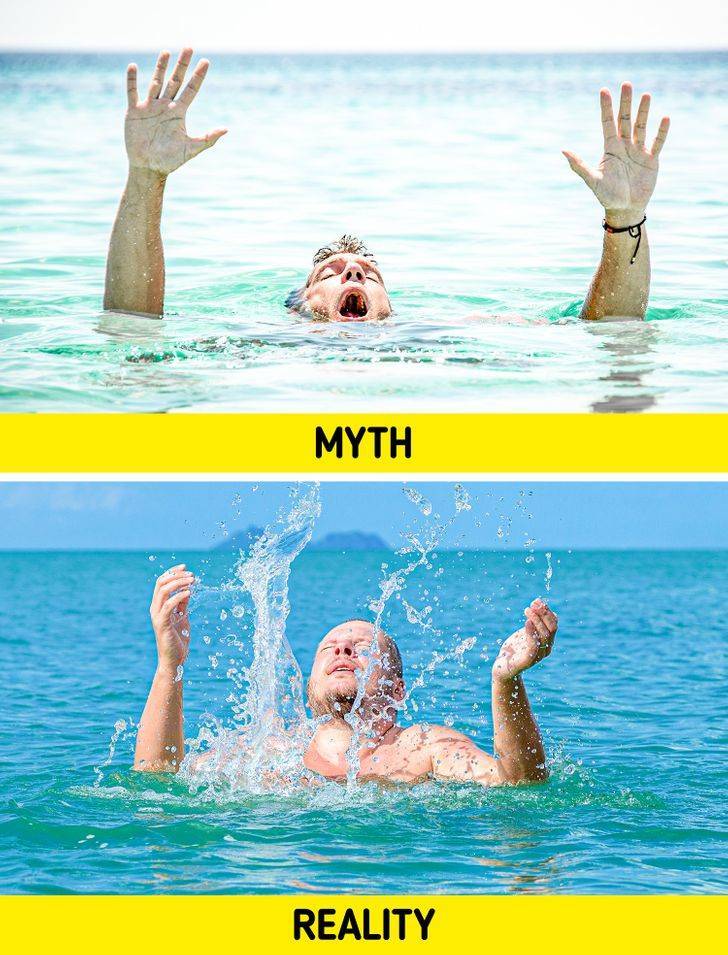
The truth: Waiting 30 minutes to 1 hour after eating to get in the water is not necessary. There is no concrete evidence that you will drown if your stomach is full. In the worst-case scenario, you might get a stomach cramp and that’s why you might want to swim in shallow waters so you can get out immediately. Now, it might not be the most comfortable sensation to swim on a full stomach, but you won’t get in harm’s way if you decide to do so.
Our blood is blue before it comes into contact with oxygen.
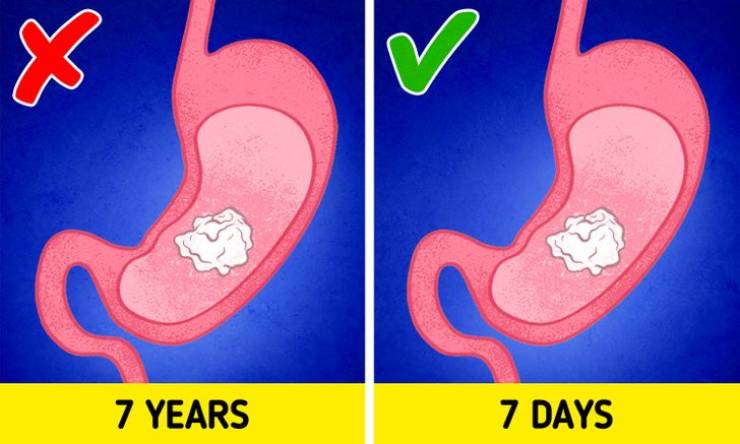
The truth: Some people get confused when they see through their skin that their veins are a blue color. This is just an optical illusion and not proof that some of the blood inside our bodies doesn’t contain any oxygen. In reality, blood remains dark red inside our veins and turns a cherry red when it meets oxygen. And this is thanks to a compound called heme which is responsible for transferring blood throughout our bodies.
If you swallow gum, it stays in your stomach for 7 years.
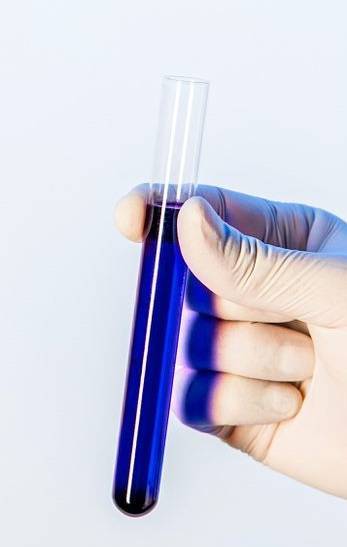
The truth: it is true that gum doesn’t get digested in your stomach, but it exits your body just like every other food. It certainly doesn’t stay in our stomach for 7 years, but instead, it leaves within 7 days. However, swallowing gum isn’t a good idea, since too much gum can block your intestines and cause constipation. That’s why you should be careful with this habit — especially with children.
 Barnorama All Fun In The Barn
Barnorama All Fun In The Barn